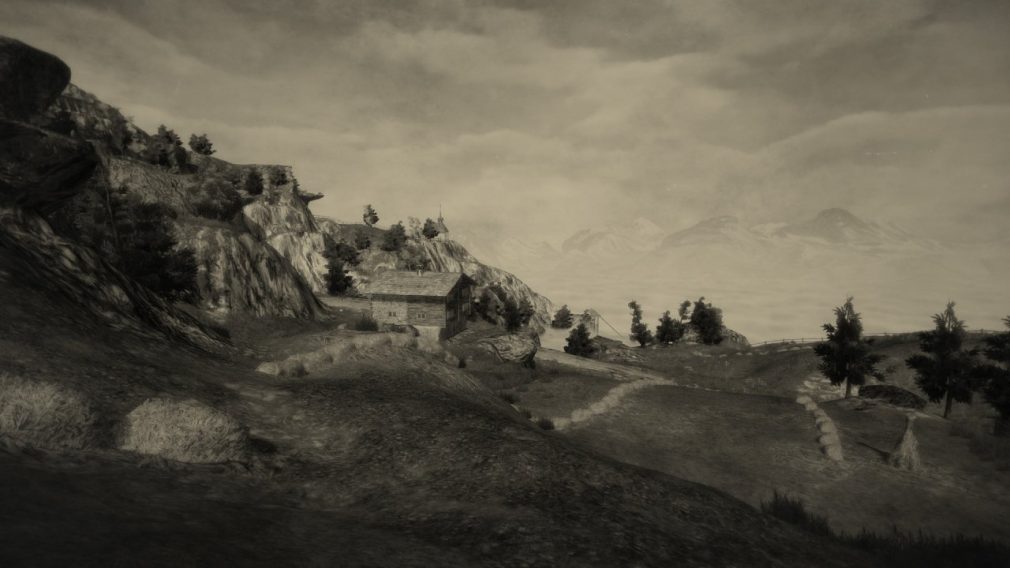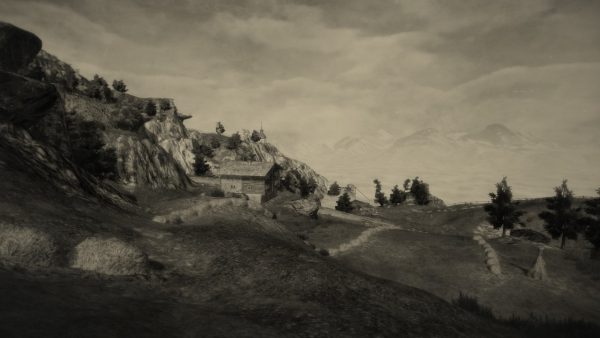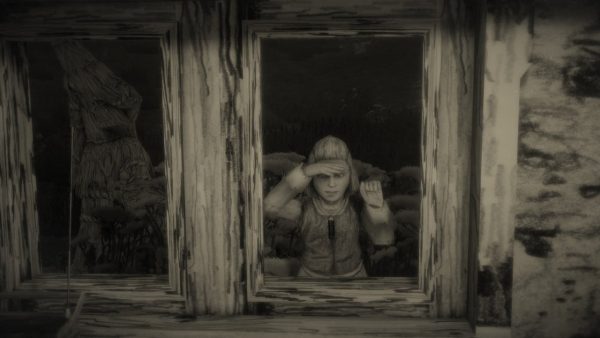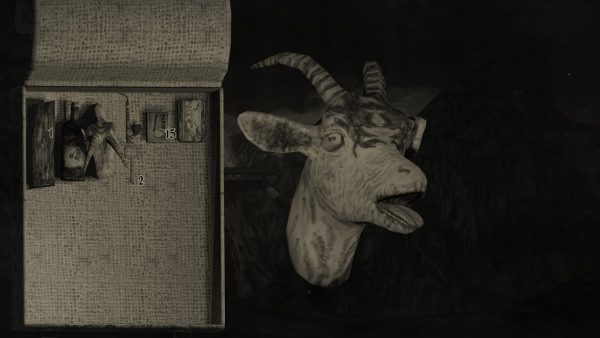Also On: PS4, PS5, Xbox One, Xbox Series X, Switch
Publisher: Hidden Fields
Developer: MWM Interactive
Medium: Digital
Players: 1
Online: No
ESRB: M
As soon as you start playing Mundaun, it separates itself from anything you have ever played before. Opening up into a world that has been entirely hand-drawn with a pencil is a wholly new experience for me. Not only does it impress on first viewing, but every time I booted up the game I was just blown away. I will get into the details of the gameplay and story here later in the review, but I truly cannot stress enough how impressive the visuals are, and how incredible it is that this game was made by one single developer.
The official synopsis of Mundaun is this: ?A lovingly hand-penciled horror adventure by Hidden Fields, a one-man studio founded by Swiss programmer and illustrator Michel Ziegler, slated to release on PC and consoles on March 16, 2021. Mundaun is a tale set on the darker side of the Swiss Alps, with a story rooted in the chilling folklore of the region. Players follow a young man who travels to the town of Mundaun to investigate the mysterious circumstances behind his grandfather?s death. Along the way, he discovers that something old and diabolic is haunting the eccentric residents of the town. Players will solve a number of hand-crafted puzzles to uncover the secrets of Mundaun, and must also avoid triggering the game?s unique fear system, a ?cause-and-effect? gameplay feature which impacts players if they become scared.?
The game opens with the player character on his way to Mundaun, after receiving a letter from a local priest notifying him of the death of his grandfather. Once you arrive, Mundaun wastes no time in spooking and puzzling you. The 2D-3D transition of the hand-penciled drawings makes for a very unique, and intentionally offputting world. Characters look unlike anything you have ever seen before, but it works in the context of this game. I will be the first to admit that I had my doubts about how scary Mundaun would actually end up being, but it manages to both surprise and horrify in equal measure.
The opening 30-60 minutes of the game were admittedly a struggle for me. Once the initial shine of the art-style wore off, I found myself underwhelmed by lackluster controls, poor inventory management, and some poorly constructed environmental interactions. Once I began to grow accustomed to some of these minor frustrations, I was able to start enjoying things more and really start digging deeper into the story. There is very little that I will be discussing here in regards to that aspect of Mundaun, for fear of spoiling things. Every part of this story deserves to be experienced for the first time when you play the game. Unless you are well versed in this particular set of folk tales, everything here will be a new story and experience.
The primary gameplay mechanic in Mundaun is environmental exploration and puzzle-solving, with the option to engage in combat as well. I suggest avoiding combat for a few reasons. Primarily, it does not seem like Mundaun really wants you to try and engage in very much of it. Everything seems geared more towards trying to avoid/escape combat encounters, not seek them out. The other reason I avoid it is because it just isn?t very good. I do not judge Mundaun too harshly on its poor combat mechanics however, as I said, it does not really seem like the game wants you to do it anyway. You have access to a pitchfork that breaks easily and eventually gain access to a rifle, but it is unreliable and frustrating to use. Your best bet is to avoid and retreat.
The puzzles in Mundaun are numerous, but not overly difficult. If you get stuck, a quick peek at your ever-changing journal is usually enough to open your eyes. If the answer is not in your journal, it is most likely in the environment around you. Although the puzzles are not too hard, they also walk that fine line and manage not to be too easy either. Mundaun keeps you thinking, and most importantly, paying attention. Focusing on the world and the story is what allows you to progress smoothly, nothing in Mundaun is aimless. It is a surprisingly tight and focused experience, with no filler. That isn?t to say that there is no time to relax and explore, there certainly is, but even that ends up serving the story and furthering the in-game experience. Exploration is rewarded with simple upgrades or small additions to the journal that will come in handy later on.
Mundaun is about as long as you would expect from an indie game like this, coming in right around 5 hours, but the branching story trees demand multiple playthroughs, and the very specific chapter selection options make it very easy to go back and pick up right where the story branches out. This is such a seemingly simple addition, but it really allows for the player to experience all that Mundaun has to offer, without having to replay the entire game over and over. Mundaun really respects the player?s time and wants you to experience as much of it as you can.
I was very impressed with Mundaun from the beginning, and despite that impression faltering a bit while I got my bearings and came to grips with some of the wonky controls and design choices, it ultimately delivered an experience that was beyond what I could have hoped for. I was drawn to this game from the first announcement, mostly because of the unique art-style and intriguing story, and it really managed to deliver above and beyond the initial promise. Stick with Mundaun past the growing pains, and I think you will really enjoy it too.
Note: MWM Interactive provided us with a Mundaun PC code for review purposes.




